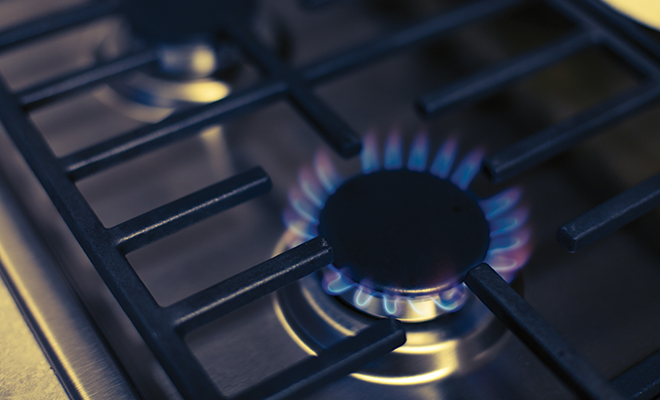
An Undetected Danger: Natural Gas Safety
Whether it’s the simple act of buckling your child’s seat belt or the chinstrap of their bicycle helmet, holding their hand as they cross the street or encouraging them to wash their hands, protection is always a parent’s first priority.
Parents might not even notice how often they step in to help their kids avoid accidents and illnesses simply because it’s second nature. Skinned knees and strangers are no match for moms, but are you prepared to protect your family against an almost undetectable deadly hazard?
Natural gas is a colorless, odorless fuel source made up of methane and hydrocarbons. It’s clean burning and one of the safest fuels available.
That’s why we use it so often in everyday life, to cook dinner, heat our homes, produce electricity, dry clothes and warm water. With so many benefits, it doesn’t seem so threatening. How could a fuel source that helps in so many ways become so dangerous?
Natural Gas Leaks
While natural gas is non-toxic and generally reliable in so many ways, the vapors may become deadly in high concentrations. Poorly maintained appliances are often the source of a gas leak. Natural gas is lighter than air and rises, then dissipates if it escapes. The gas will gather in confined spaces while traveling toward the closest source of ignition.
When the gas leaks into the atmosphere, it creates a dangerous, flammable mixture that can quickly ignite and turn into a deadly explosion. Leaks can cause asphyxiation and intense dizziness without any warning. You can prevent indoor gas leaks by ensuring gas lines are installed properly by licensed professionals and inspected annually.
Outdoor Safety
Outdoor leaks can occur when a resident mistakenly hits the pipeline while digging around their yard. Homeowners can avoid this problem entirely by calling 811 at least 48 hours prior to digging.
The utility company can mark the lines that they own so that safe, careful digging can commence. If you knowingly hit a pipeline, it’s essential to leave the area, alert your neighbors and call 911 as well as the utility company.
Recognizing a Leak
Due to the highly discrete nature of natural gas leaks, using your senses will help you recognize if it has occurred in your home. Look for signs of a leak by scanning the environment for dense fog, discolored vegetation in the area, bubbling in standing water or frozen ground near the pipeline.
In addition to looking for physical clues, listen for whistling, roaring and hissing sounds. Any unusual noise should be noted. The most common sign of a gas leak is a distinctive smell, similar to rotten eggs or sulfur, produced by an odorant added to natural gas for safety reasons. However, the scent can be masked by other odors in the area and odor fade can occur.
Plan of Action
If you think you sense or smell a natural gas leak, it’s urgent that you leave your home immediately on foot. Do not attempt to start your car or drive away from the area because it could cause a spark. Refrain from using electric switches and telephones (yes, even your cell phone) before you run to a safe location.
Call 911 and warn others to stay away from the area. Never assume someone else has called and reported a leak as it is an emergency and timing is crucial.
Carbon Monoxide Safety
Carbon monoxide is another colorless, odorless, tasteless gas that is extremely dangerous when inhaled; it’s often referred to as a silent killer. The harmful gas builds up when appliances are not maintained correctly, such as a furnace that fails to vent properly.
When inhaled, the deadly gas robs the brain and organs of oxygen. Anyone who comes in contact with carbon monoxide can become ill and incapacitated extremely quickly. Signs of carbon monoxide exposure include headaches, nausea, fatigue and blurred vision.
Unusual indoor humidity, heavy condensation on windows and stuffy air are all signs that carbon monoxide is present. If you suspect carbon monoxide is present in your home, ventilate the area immediately by opening windows and shutting off fuel-burning appliances. Evacuate all family members and pets from the area.
Get fresh air and call 911 as quickly as you can. Avoid carbon monoxide poisoning by installing a detection device in the common areas and close to the bedrooms in your home.
The scariest threats to you and your family’s safety are the risks that go undetected. This spring, as you protect your family against the elements, remember to refresh your defense against natural gas leaks. Have your appliances and detection devices inspected to ensure safety all season long. ■
Sources: centerpointenergy.com and safeandsmart.org.







